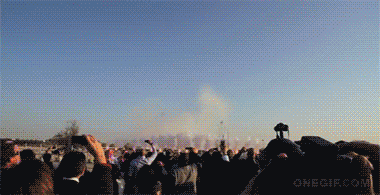Shared posts
this isn't happiness.™ Peter Nidzgorski, tumblr
wskentI feel like Kermit.
yep.
wskentEvery now and again a tv/movie scene makes me want a certain food so badly! With great urgency I submit the following to you:




yep.
Map of bizarre British place names
wskentQuite bawdy (also makes me feel like I have free reign to name anything as I wish)
 Strumpshaw, Tincleton & Giggleswick sell this map, in traditional and wordcloud form, for £22. If you ever visit, take the time to visit beautiful Shitterton, Lickham Bottom, and Marston Bigot.
Strumpshaw, Tincleton & Giggleswick sell this map, in traditional and wordcloud form, for £22. If you ever visit, take the time to visit beautiful Shitterton, Lickham Bottom, and Marston Bigot.Here's How Michelin Went from Selling Tires to Handing Out Stars — Food News
wskentI always wondered about this.
Did you know that Michelin Tires and Michelin Stars are one and the same? I know. Strange. But it makes sense if you think about — a tire company trying to sell tires by publishing destination travel guides, which gradually morphs into their current-day star-rating system. Business Insider has the full story.
blazepress: Fireworks designed for daytime.
wskentstart your week with a pretty bang.
this isn't happiness.™ Peter Nidzgorski, tumblr
wskentmay we all be so lucky.
The Knowledge
wskentguys, this is really great.

“Ultimately, the case to make for the Knowledge may not be practical-economic (the Knowledge works better than Sat-Nav), or moral-political (the little man must be protected against rapacious global capitalism), but philosophical, spiritual, sentimental: The Knowledge should be maintained because it is good for London’s soul, and for the souls of Londoners. The Knowledge stands for, well, knowledge — for the Enlightenment ideal of encyclopedic learning, for the humanist notion that diligent intellectual endeavor is ennobling, an end in itself. To support the Knowledge is to make the unfashionable argument that expertise cannot be reduced to data, that there’s something dystopian, or at least depressing, about the outsourcing of humanity’s hard-won erudition to gizmos, even to portable handheld gizmos that themselves are miracles of human imagination and ingenuity. London’s taxi driver test enshrines knowledge as — to use the au courant term — an artisanal commodity, a thing that’s local and homespun, thriving ideally in the individual hippocampus, not the digital hivemind.”
Via (NYTimes Magazine)
Movie Credits 4: Inception (2010)
wskentLaundromancer

Movie Credits 4: Inception (2010)
The Knowledge of London
wskentdon't you dare tl;dr this. it's AWESOME. savor it.
Great piece about The Knowledge, the collection of geographical information that all London taxi drivers must learn before becoming a cabbie.
The guidebook issued to prospective cabbies by London Taxi and Private Hire (LTPH), which oversees the test, summarizes the task like this:
To achieve the required standard to be licensed as an "All London" taxi driver you will need a thorough knowledge, primarily, of the area within a six-mile radius of Charing Cross. You will need to know: all the streets; housing estates; parks and open spaces; government offices and departments; financial and commercial centres; diplomatic premises; town halls; registry offices; hospitals; places of worship; sports stadiums and leisure centres; airline offices; stations; hotels; clubs; theatres; cinemas; museums; art galleries; schools; colleges and universities; police stations and headquarters buildings; civil, criminal and coroner's courts; prisons; and places of interest to tourists. In fact, anywhere a taxi passenger might ask to be taken.
If anything, this description understates the case. The six-mile radius from Charing Cross, the putative center-point of London marked by an equestrian statue of King Charles I, takes in some 25,000 streets. London cabbies need to know all of those streets, and how to drive them -- the direction they run, which are one-way, which are dead ends, where to enter and exit traffic circles, and so on. But cabbies also need to know everything on the streets. Examiners may ask a would-be cabby to identify the location of any restaurant in London. Any pub, any shop, any landmark, no matter how small or obscure -- all are fair game. Test-takers have been asked to name the whereabouts of flower stands, of laundromats, of commemorative plaques. One taxi driver told me that he was asked the location of a statue, just a foot tall, depicting two mice sharing a piece of cheese. It's on the facade of a building in Philpot Lane, on the corner of Eastcheap, not far from London Bridge.
The goal is to install a complete map of London in the brain of every licensed taxi driver. And indeed, according to neuroscientist Eleanor Maguire, the part of the brain responsible for memory becomes physically bigger as The Knowledge is absorbed.
Seeing, for a Knowledge candidate, is everything -- at its heart, the Knowledge is an elaborate exercise in visualization. When McCabe called-over, he closed his eyes and toggled between views: picturing the city at street level, the roads rolling out in front of him as if in a movie, then pulling the camera back to take in the bird's eye perspective, scanning the London map. Knowledge boys speak of a Eureka moment when, after months or years of doggedly assembling the London puzzle, the fuzziness recedes and the city snaps into focus, the great morass of streets suddenly appearing as an intelligible whole. McCabe was startled not just by that macroview, but by the minute details he was able to retain. "I can pull a tiny little art studio just from the color of the door, and where it's got a lamppost outside. Your brain just remembers silly things, you know?"
I could go on and on...I loved this piece. Don't miss the video of a prospective cabbie calling out the route he would use to go from Rotherhithe Station to the Natural History Museum, entirely from memory without looking at a map. Compare with Google's driving directions.
Update: View From the Mirror is a blog written by a London cabbie, which includes his experience training for The Knowledge. (thx, bryan)
Tags: London maps taxiThe Oatmeal to Ted Cruz: Net Neutrality is not Obamacare
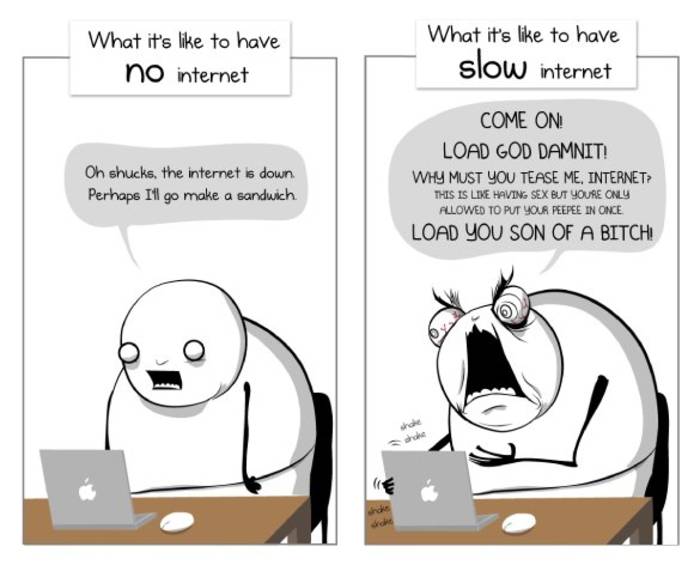
It's very well said, but the amazing thing is that it needed to be said at all.
http://feedproxy.google.com/~r/dspn/everyone/~3/-MLsLsD7Cyw/
wskentnature, man. nature.
A guide to Serial: the best podcast in the world
wskenthey TOR do any of you guys listen to this? i just hoped on the bandwagon. it's really well produced. the thing i've been coming up against, though, is whether it's okay to exploit something like this for entertainment purposes. i take no issue with the storytelling, but it's telling the story of real peoples' lives. to generalize, it's the rub with investigative journalism - it's inspirational if it pays off, but if it doesn't, then the journalist becomes paparazzi-ish, nosing around an awful time in several peoples' lives. if that happens then it just feels exploitative. yuck.
in spite of these reservations, you should all reinforce my concerns and listen to it if you don't already.
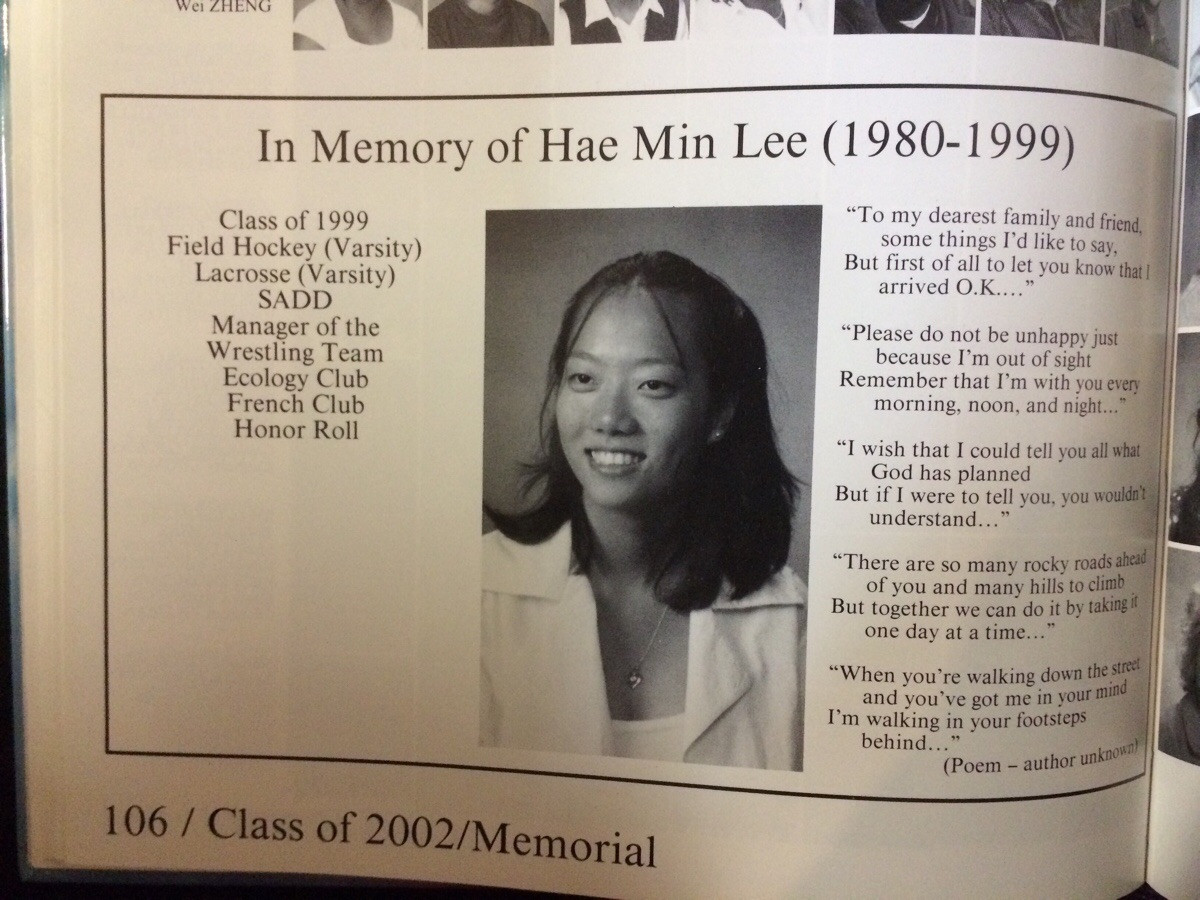
Serial is a podcast about a murder that happened in 1999. It's produced by This American Life and it's the best podcast series I've listened to. Read the rest
ObamaCare for the Internet? ISPs and friends lash out at president
wskentThis man has so much wealth and access to so much more wealth that it bears repeating that everything in this "rebuttal" comes from a place of extreme, delusional wealth. Also via splitsider:
JOHN FUGELSANG "Net Neutrality Is Obamacare For The Internet" - proving that Ted Cruz is the Abraham Lincoln of Sarah Palins.
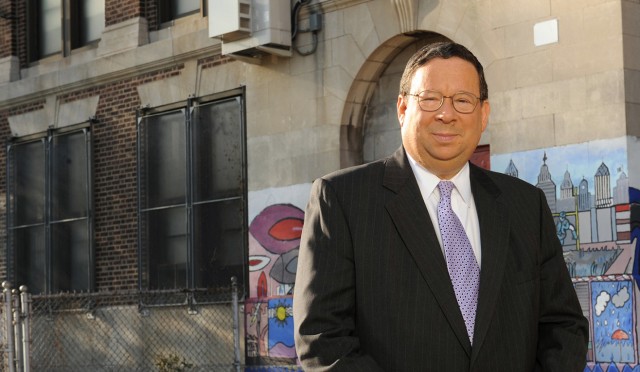
Internet service providers and their supporters are mad as hell at President Obama for supporting reclassification of broadband as a utility.
While consumer advocates applauded the president, ISPs, their friends in Congress, and industry consortiums issued a series of statements calling reclassification a worst case scenario that will ruin the Internet.
Sen. Ted Cruz (R-TX) got the ball rolling by tweeting “‘Net Neutrality’ is Obamacare for the Internet."
Read 17 remaining paragraphs | Comments
MOVIE PROMPTS a ornery, yet loveable cakemaker who is...
wskenti drained some ideas from my brain the other day.

MOVIE PROMPTS
-
a ornery, yet loveable cakemaker who is terrified of sweets.
-
a powerful tyrant whom everyone fears actually has a big heart. it turns out to be a medical condition which leads to his early demise.
-
an insecure, gigantic monster befriends a human who teaches him how to be more confident, ultimately resulting in the extinction of mankind.
-
a gang of bro-ish seahorses does the unthinkable - cracks the code of the universe in astonishingly short order.
-
a judge with a big heart suffers from the same ailment as the tyrant. before her premature death, she stars in a TV show called The Gavel’s Travels: Justice on the Move, visiting many exotic locations for a judge (which are far less exotic than you’d think). the show is cancelled after only two episodes.
-
a stockbroker makes jokes about things he doesn’t understand. he thinks he’s pretty funny until he realizes how much more money he could be making if he didn’t laugh as much. he grows more severe, sinking into the expansive upholstery of an enormous, plush, chair, forever richer than you.
-
against all odds love finds a way on the planet mars. after consuming its population love sets its sights on its next target: earth.
-
you accidentally join a ghost choir. they’re pretty good, but you feel uncomfortable making all those ghost jokes you love so much.
-
tire swings proliferate at an alarming rate. T. Gauze Neuwalter, economist, is sent in to figure it out all out.
-
a stereotypical guru who sits on a mountain top learns to herd snow. havoc follows.
-
imagine the price is right, but with more axes.
-
pity-eating is all the rage. snakes run the mills. schools are overrun with questions. who will stop this madness? simple: the sun and its decision to explode.
-
it is quietly suppressed, but scientists discover that pandas are dolphins in land-suits. nobody knows what the fuck to do. there are lots of scenes of powerful women and men whispering around room-sized maps of the world sweating and pacing
-
a famous balloonist begins to fear that the clouds are watching him. a climactic sky-duel answers this question sufficiently.
-
for a while mick jagger becomes possessed by Akh’tuh Khu, a soul-thirsting Hittite war-god. nobody really notices or cares. [end with opening riff to Satisfaction]
-
tadpoles learn english. they spell dirty words in the local ponds. parents are infuriated, but the ‘poles are protected by the first amendment. there is a mass migration to canada. shantytowns proliferate and crushing poverty drives the country into ruins.
-
can a bad witch become a good cop?
-
scientists isolate the most flawless form of argyle. they marvel at it. word gets out. the great draper wars last thirty years or more.
-
will it fit into a box?: the trilogy.
- a sandwich ban begins to unravel the very fabric of society. the hoagie measure from congress comes too late as the inertia of anger is too overwhelming. beings from other planets arrive as mediators but are obliterated by sandwichless earth-rage. a galactic howl silences our corner of the universe. everything goes dark.
http://feedproxy.google.com/~r/dspn/everyone/~3/PO6qMI8KNbo/
wskentT-2 days til the next polar vortex. Stop by for a warmer, everyone.
Wikipedia: Deleted articles with freaky titles
wskentthis is what happens when you hold a mirror up to the internet.
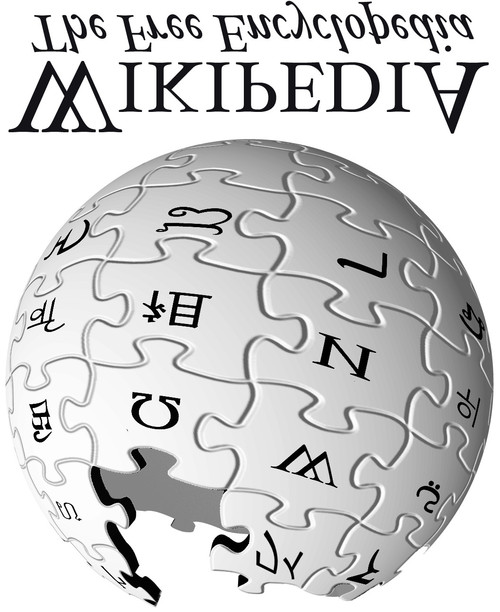
"Cambodian scrotum theives," "Dating Rules From My Future Self,"Fake articles and entries in dictionaries, encyclopedias, and other reference books, lists, and directories as well as fictitious places, streets or other intentionally fake insertions in maps," "The Fax Machine Monster of Basildon,"
Read the rest
Kowloon Wall Cross-Section
wskentclick. now. just do it. click!
The size of astronomy stuff
wskentSCALE!
It can be difficult to understand how large (or small) astronomical objects are, so here are some handy comparisons to things on Earth. Here's the size of Mars compared to the United States & Canada:
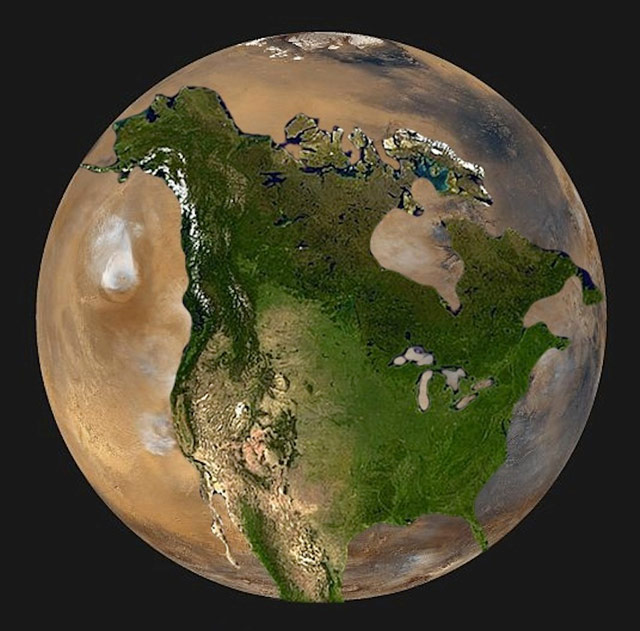
And here's a neutron star nestled next to Liverpool on the northwest coast of England:
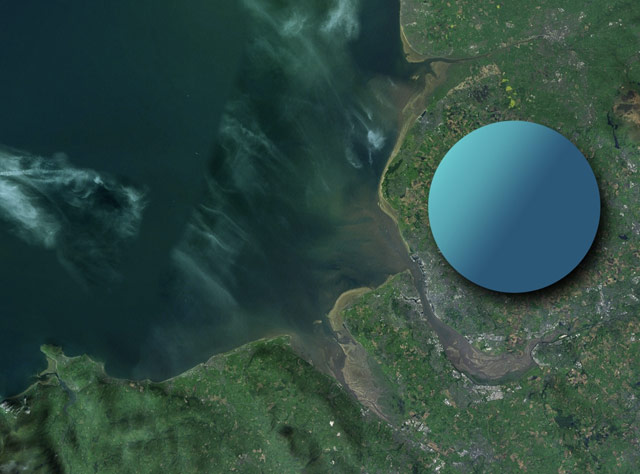
A neutron star also crams in over 1.5 times the mass of the Sun into a tiny ball maybe not much bigger than your daily commute to work, and the Sun is huge (see the size of the Sun later). So this thing is incredibly dense, so dense in fact that just a tea spoon of it would weigh over a billion tonnes, and if you could stand on its surface you'd feel the gravitational pull of 200 billion times that of our planet...not that you'd ever survive it of course.
(via @theclintmcleod)
Tags: astronomy Mars spaceDoing a release

by @devhops
What's the most cited research paper ever? You'll be surprised.
wskentNERD ALERT. coolist thing: what persists, what doesn't, and what comes back.
Nature presents the top 100 papers cited by others, a "paper mountain" of science's greatest hits.
The exercise revealed some surprises, not least that it takes a staggering 12,119 citations to rank in the top 100 — and that many of the world’s most famous papers do not make the cut.
Read the restPolitical Brutes
wskent"Animal rights theory has been limited to the extent that it has emphasized only negative rights of animals, a category that is conceived as universal and without any distinctions of moral significance within it. They argue instead that theorists would do well to focus on relational obligations that human beings come to have to animals that figure in different ways in human society." Socio-political ecosystem. Makes sense.
Justin E. H. Smith argues that humans “are not the only political animals”:
There are overwhelming empirical data revealing, to anyone who is willing to look, complex social organization across the animal kingdom, including collective deliberation, division of labor, ritualized conflict resolution, and other forms of behavior that, when identified in human society, are deemed political without hesitation. We know that elephants plan elaborate raids on human settlements to recover the remains of their slaughtered loved ones. We know that in ant colonies the appearance of elaborate systems of task-allocation is related directly to the size of the colony: just as in human society, the more individual members of the society, the more we may expect to find social differentiation. Thanks to the primatologist Frans De Waal’s popular work, we are now slowly warming up to the idea that there is such a thing, at least, as “chimpanzee politics.” …
[T]here is another way of understanding animals as political that even the most defiant human-exceptionalist cannot dispute:
not as separated out into their own discrete political societies, each according to its kind, but rather as part of a single, global political formation that includes, notably but not exclusively, human beings. Some recent political philosophy, in fact, is starting to approach its subject from just such a trans-species perspective. In their groundbreaking 2011 book, Zoopolis: A Political Theory of Animal Rights, Sue Donaldson and Will Kymlicka argue compellingly that animal rights theory has been limited to the extent that it has emphasized only negative rights of animals, a category that is conceived as universal and without any distinctions of moral significance within it. They argue instead that theorists would do well to focus on relational obligations that human beings come to have to animals that figure in different ways in human society. For them, nonhuman animals belong to the polis, too.
Update from a reader:
I came across this item regarding animal politics. Several species seem to make decisions by voting. A couple examples:
Red deer
The red deer of Eurasia live in large herds, spending lots of time either grazing or lying down to ruminate. Some deer are ready to move on before others are, and scientists have noticed that herds only move when 60 percent of the adults stand up — essentially voting with their feet. Even if a dominant individual is more experienced and makes fewer mistakes than its underlings, herds typically favor democratic decisions over autocratic ones.
A major reason for this, according to research by biologists Larissa Conradt and Timothy Roper, is that groups are less impulsive: “Democratic decisions are more beneficial primarily because they tend to produce less extreme decisions, rather than because each individual has an influence on the decision per se.”
African buffalo
Similar to red deer, African buffalo are herd herbivores that often make group decisions about when and where to move. In the 1990s, researchers realized that what initially looked like “mundane stretching” is actually a type of “voting behavior,” in which females indicate their travel preferences by standing up, staring in one direction and then lying back down.
“Only adult females vote, and females participate regardless of their social status within the herd,” biologist David Sloan Wilson wrote in a 1997 study. “When the average direction of gaze is compared with the subsequent movement of the herd, the average deviation is only three degrees, which is well within measurement error. On days in which cows differ sharply in their direction of gaze, the herd tends to split and graze in separate patches for the night.”
Why Facebook Just Launched Its Own ‘Dark Web’ Site
wskentinteresting b/c it makes you think about whose data they are most concerned about. my fb-suspicious mind thinks it's not for The Greater Good, so who's it for?

Now the world's least anonymous website (Facebook) has just joined the Web's most anonymous network (Tor).
The post Why Facebook Just Launched Its Own ‘Dark Web’ Site appeared first on WIRED.
Season finale of “Tim and Eric’s Bedtime Stories” airs Thursday. Just in time: Duke Aber's awesome poster art.
wskentTim and Eric can be a little much (a little!?!), but they aren't in most of these. They have a very Twilight Zone-y feel. I RECOMMEND IT.
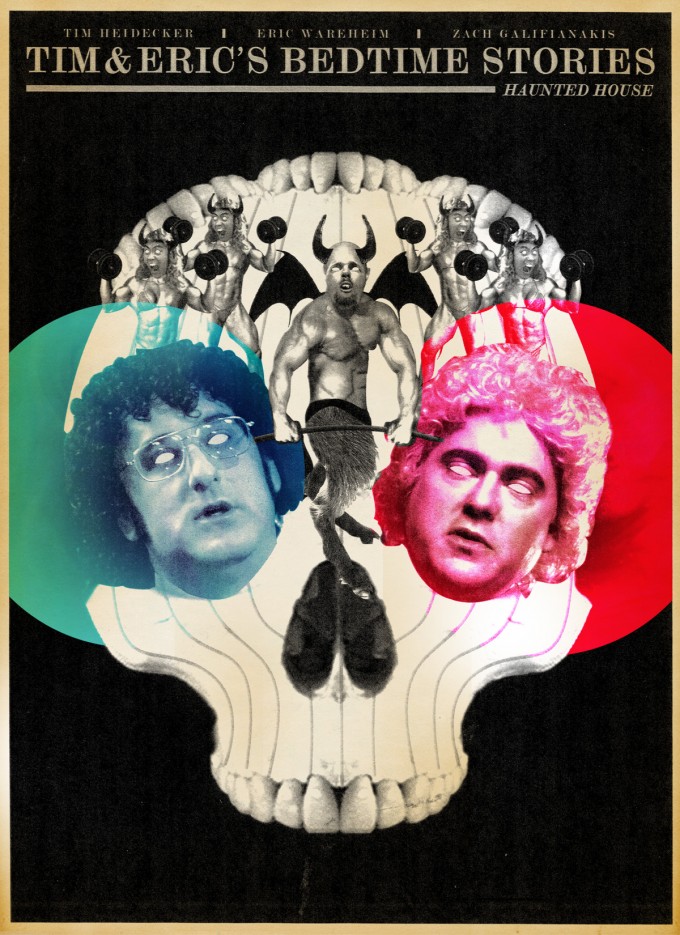
The season finale of "Tim and Eric’s Bedtime Stories" airs this Thursday night on Adult Swim, at 12:15am. Duke Aber made these amazing unique posters for each episode. Read the rest
Our Cities Could Get a Whole Lot Smarter - Facts So Romantic
wskentI like how quaint this makes the present feel.

Pieces of SolaRoad, concrete blocks topped with solar cells, were recently installed in a bike path in Holland.SolaRoad
Remember having to stay at home and wait for phone calls? (If you’re below a certain age, you can consult old movies, books, or TV shows—or just trust me on this.) It wasn’t so long ago that we all got mobile phones, but landlines already seem all but obsolete.
So, soon, could a lot of our urban infrastructure. In fact, most of it, from sewers to electrical grids to roadways, is outdated technology that goes back a century or more. It wastes energy and money, is vulnerable to disasters, and doesn’t expand to meet the needs of growing populations.
A dramatic rethinking of our infrastructure is underway, especially as part of the “smart cities” movement. Smarter technologies—some older and established, some still in development—could make our cities more efficient and livable.
Activate urban surfaces
Our sidewalks, parking lots, bike paths, and possibly even roads can be much more than the inert blocks they are now. Last week a new product called SolaRoad—a concrete block with solar cells embedded near the top—started its first trial (pdf), as the surface of…
Read More…



